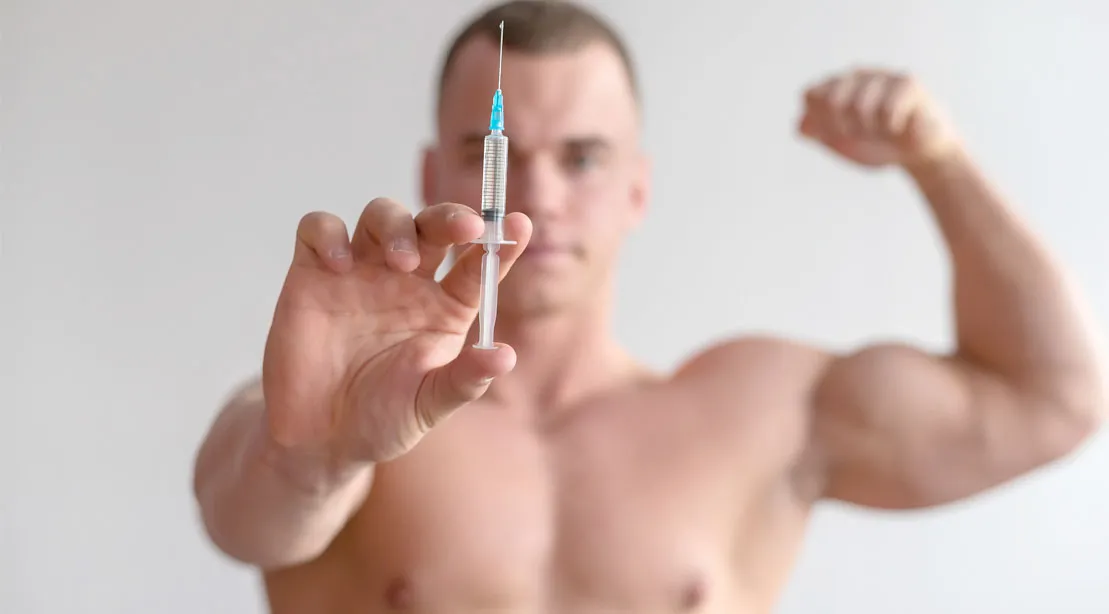Growth hormone (GH) therapy has gained attention for its potential benefits in enhancing growth, metabolism, and overall health. As individuals seek solutions for issues such as decreased muscle mass, increased body fat, and energy decline associated with aging or hormone deficiencies, understanding the role of GH becomes essential. This article provides a comprehensive overview of growth hormone, its functions, common side effects, long-term risks, and guidance for making informed decisions about treatment.
By exploring the biological functions of GH, the implications of therapy, and the importance of medical supervision, readers will gain valuable insights to navigate their health choices effectively. Whether considering GH therapy for personal health goals or managing existing conditions, this information aims to empower individuals with the knowledge needed to make informed decisions.
In this article you will find:
Understanding Growth Hormone and Its Role in Health
Growth hormone (GH), also known as somatotropin, is a crucial peptide hormone produced by the pituitary gland. It plays a vital role in growth, metabolism, and overall health throughout life. Understanding its functions and significance can help individuals make informed choices regarding their health and wellness.
The Biological Functions of Growth Hormone
Growth hormone influences various physiological processes, including:
- Growth and Development: GH is essential for physical growth during childhood and adolescence. It stimulates the growth of bones and tissues, ensuring proper development.
- Metabolism Regulation: This hormone plays a significant role in regulating metabolism by promoting protein synthesis, fat breakdown, and carbohydrate metabolism. It helps the body utilize nutrients more effectively.
- Muscle Mass Maintenance: GH contributes to muscle growth and strength by enhancing amino acid uptake and protein synthesis in muscle cells.
- Bone Density Improvement: It aids in increasing bone density, reducing the risk of fractures and osteoporosis as individuals age.
Growth Hormone and Aging
As people age, natural growth hormone levels tend to decline, which can lead to various health issues such as decreased muscle mass, increased body fat, and reduced energy levels. This decline has sparked interest in GH therapy as a potential solution for combating the effects of aging.
However, it’s essential to approach this therapy with caution. While some studies suggest that GH therapy can improve body composition and enhance physical performance, it is not a universal remedy for aging and may carry risks.
Natural Sources of Growth Hormone
While synthetic growth hormone is available, there are natural ways to boost its levels in the body. Some effective strategies include:
- Regular Exercise: Engaging in high-intensity workouts, resistance training, and aerobic exercises can stimulate GH production.
- Quality Sleep: Adequate sleep is crucial for the release of growth hormone. Aim for 7-9 hours of restorative sleep each night.
- Healthy Diet: Consuming a balanced diet rich in protein, healthy fats, and complex carbohydrates can support hormone production. Foods like lean meats, fish, eggs, nuts, and whole grains are beneficial.
Understanding the Need for Medical Intervention
For individuals diagnosed with growth hormone deficiency, medical intervention may be necessary. Symptoms of deficiency can include:
- Increased body fat, particularly around the abdomen
- Decreased muscle mass and strength
- Fatigue and low energy levels
- Reduced bone density
If you suspect a deficiency, consult a healthcare professional for appropriate testing and potential treatment options. It is crucial to approach growth hormone therapy under medical supervision to avoid potential side effects and complications.
For further insights into the role of hormones in health, you can visit the National Institute of Environmental Health Sciences.
Common Side Effects of Growth Hormone Use
While growth hormone (GH) therapy can offer numerous benefits, it is essential to be aware of the potential side effects that may arise from its use. Understanding these side effects can help individuals make informed decisions and manage their health more effectively.
Physical Side Effects
One of the most common categories of side effects associated with growth hormone therapy involves physical changes. These can include:
- Swelling and Edema: Many users experience swelling, particularly in the hands and feet, due to fluid retention.
- Joint Pain: GH can lead to discomfort in the joints, often referred to as arthralgia, which can affect daily activities.
- Muscle Pain: Some individuals report muscle soreness or cramps, which can be exacerbated by intense physical activity.
- Carpal Tunnel Syndrome: This condition, characterized by numbness and tingling in the hands, can result from increased pressure on the median nerve due to fluid retention.
Metabolic Changes
Growth hormone can also induce various metabolic changes, which may manifest as:
- Insulin Resistance: Some users may experience insulin resistance, which can lead to elevated blood sugar levels and increase the risk of type 2 diabetes.
- Altered Lipid Profiles: GH therapy can affect cholesterol levels, potentially leading to increased LDL (bad cholesterol) and decreased HDL (good cholesterol).
Psychological Effects
In addition to physical and metabolic side effects, psychological effects can occur. These may include:
- Mood Changes: Some individuals report mood swings, anxiety, or even depressive symptoms during GH therapy.
- Increased Aggression: There are anecdotal reports of heightened aggression or irritability, particularly in those taking higher doses of GH.
Cardiovascular Risks
Another area of concern is the potential impact of growth hormone on cardiovascular health. Users may face:
- Hypertension: Some studies indicate that GH therapy may lead to increased blood pressure, necessitating regular monitoring.
- Cardiomyopathy: Long-term use of GH has been linked to an increased risk of heart enlargement and dysfunction.
Importance of Monitoring
Given these potential side effects, it is crucial for individuals undergoing growth hormone therapy to have regular check-ups with their healthcare provider. Monitoring can help identify any adverse reactions early and allow for timely adjustments to treatment plans.
For those considering GH therapy or currently using it, understanding these side effects is vital. For more detailed information on managing hormone therapy and its risks, you can visit the National Institute of Environmental Health Sciences.
The Long-Term Risks of Growth Hormone Therapy
While growth hormone (GH) therapy can offer benefits such as improved muscle mass and enhanced recovery, it is crucial to consider the potential long-term risks associated with its use. Awareness of these risks can guide individuals in making informed decisions about their health and treatment options.
Cardiovascular Health Concerns
One of the most significant long-term risks of GH therapy is its impact on cardiovascular health. Prolonged use of growth hormone can lead to:
- Increased Blood Pressure: GH can cause fluid retention and increase blood volume, potentially leading to hypertension over time.
- Cardiomyopathy: Studies suggest that excessive GH levels may contribute to heart enlargement and dysfunction, increasing the risk of heart failure.
- Arrhythmias: Some users may experience irregular heartbeats, which can be serious and require medical attention.
Metabolic Disorders
Long-term GH therapy can also alter metabolic processes, leading to various disorders:
- Insulin Resistance: Chronic exposure to elevated growth hormone levels can impair insulin sensitivity, raising the risk of type 2 diabetes.
- Dyslipidemia: Changes in lipid metabolism may result in unfavorable cholesterol profiles, with increased LDL (bad cholesterol) and decreased HDL (good cholesterol).
Bone Health Implications
While GH is known to enhance bone density, excessive levels can paradoxically lead to bone-related issues:
- Increased Fracture Risk: High doses of GH can lead to abnormal bone growth and increased fracture risk, especially in older adults.
- Joint Problems: Long-term use may exacerbate joint pain and discomfort, leading to conditions like osteoarthritis.
Potential for Tumor Growth
Another serious concern with long-term GH therapy is its potential link to tumor growth:
- Increased Risk of Cancer: Some research indicates that elevated GH levels may be associated with a higher risk of certain cancers, particularly in individuals with a history of tumors.
- Monitoring for Pre-existing Conditions: Individuals with a history of cancer should approach GH therapy cautiously and under strict medical supervision.
Psychological Effects Over Time
Long-term GH use can also lead to psychological effects that may impact quality of life:
- Mood Disorders: Users may experience increased anxiety, depression, or mood swings, which can persist with prolonged therapy.
- Changes in Behavior: Some individuals report heightened aggression or irritability, particularly at higher doses.
Importance of Medical Supervision
Given these potential long-term risks, it is imperative for individuals undergoing GH therapy to have regular follow-ups with healthcare providers. Continuous monitoring can help mitigate risks and ensure that any adverse effects are addressed promptly.
For a deeper understanding of hormone therapy and its implications, you can visit the National Institute of Environmental Health Sciences.
Making Informed Decisions About Growth Hormone Treatment
As interest in growth hormone (GH) therapy continues to rise, individuals seeking treatment must navigate a complex landscape of benefits, risks, and ethical considerations. Making informed decisions about GH therapy is essential for achieving desired health outcomes while minimizing potential adverse effects.
Consulting Healthcare Professionals
The first step in making informed decisions about growth hormone treatment is to consult with qualified healthcare professionals. This may include:
- Endocrinologists: Specialists in hormone-related conditions can provide personalized assessments and recommendations based on individual health profiles.
- Nutritionists: They can help design a balanced diet that complements GH therapy and enhances overall well-being.
- Psychologists: For those experiencing psychological effects, mental health professionals can offer support and strategies to manage mood changes or anxiety.
Understanding the Indications for GH Therapy
It is crucial to understand when growth hormone therapy is appropriate. Common indications include:
- Growth Hormone Deficiency: Diagnosed in children and adults, this condition may warrant treatment to restore normal growth and metabolic functions.
- Chronic Illness: Conditions like Turner syndrome or Prader-Willi syndrome may benefit from GH therapy to promote growth and improve quality of life.
- Age-Related Decline: Some individuals seek GH therapy to counteract age-related muscle loss and metabolic decline, although this use is controversial and requires careful consideration.
Evaluating the Risks and Benefits
Before starting GH therapy, it is essential to weigh the potential benefits against the risks. Key considerations include:
- Potential Benefits: Increased muscle mass, improved recovery from exercise, enhanced energy levels, and better overall health.
- Long-Term Risks: As discussed in previous sections, risks such as cardiovascular issues, metabolic disorders, and psychological effects must be considered.
Setting Realistic Expectations
Individuals should set realistic expectations regarding the outcomes of GH therapy. It is essential to recognize that:
- Results Vary: The effectiveness of GH therapy can differ significantly among individuals based on factors like age, health status, and adherence to treatment.
- Not a Miracle Solution: GH therapy should not be viewed as a quick fix for fitness or aging; a holistic approach that includes diet, exercise, and lifestyle changes is crucial.
Monitoring and Ongoing Assessment
Once GH therapy begins, regular monitoring is vital to ensure safety and effectiveness. This includes:
- Routine Blood Tests: Monitoring hormone levels, blood glucose, and lipid profiles can help detect any adverse effects early.
- Regular Check-Ups: Frequent consultations with healthcare providers allow for adjustments to the treatment plan as needed.
Ethical Considerations and Responsible Use
Lastly, individuals must consider the ethical implications of growth hormone therapy. Responsible use involves:
- Adhering to Medical Guidelines: Using GH therapy only under medical supervision and for legitimate medical conditions.
- Avoiding Misuse: Steering clear of unregulated sources or using GH for non-medical purposes, such as performance enhancement or anti-aging.
For more information on the responsible use of hormone therapies, you can visit the National Institute of Environmental Health Sciences. Growth hormone (GH), produced by the pituitary gland, plays a crucial role in growth, metabolism, and overall health. It is essential for physical development during childhood and helps regulate metabolism, maintain muscle mass, and improve bone density. While GH therapy can combat age-related decline and support individuals with hormone deficiencies, it is important to approach treatment cautiously, considering potential side effects such as joint pain, insulin resistance, and cardiovascular risks.
To make informed decisions about GH therapy, individuals should consult healthcare professionals, understand the appropriate indications for treatment, and evaluate the risks versus benefits. Setting realistic expectations and maintaining regular monitoring through blood tests and check-ups are vital for safety and effectiveness. Responsible use of GH therapy, adhering to medical guidelines and avoiding misuse for non-medical purposes, is essential for achieving desired health outcomes.




